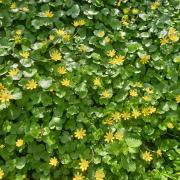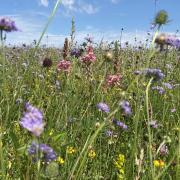Jane Mann understands the importance of feeling good in our skin, and has a few tips to help our complexions look peachy again
How you look and how you feel are intimately connected. After all, your skin is wrapped around all of you and is responsible for the sense of touch, with all those receptors in the skin. So if your skin is feeling itchy or inflamed, chances are that you will be feeling over-sensitive too.
Whether we feel good in our skin, or uncomfortable in it, will depend, to a large extent, on how our skin looks. Anything that makes the skin look bad – acne, rosacea, rashes - can make us feel hypersensitive about our looks and then uncomfortable and less confident. Feeling embarrassed about your skin can even lead to social withdrawal and lower confidence levels. I’ve known women refuse promotions, because of their skin, and get up an hour early so that their partner never sees their bare face. Somehow, though, the misery is worse for teenagers. One minute they had beautiful peachy childish faces, the next minute someone appears to have set up an oil-rig on their face, and inflamed spots are erupting, like Vesuvius in a particularly foul mood.
There is often a rush in skincare salons after the summer holidays, as teenagers are going back to school or starting anew at universities and colleges, and they and their parents are panicking about their skin. The summer sunshine often relieves teenage acne, but as autumn draws mistily in, skin reverts to its usual condition and those with acne start to feel anxious – quite understandably. Just as you want to look your best and feel confident about life, Mother Nature whacks you over the head with raging hormones and a mega-dose of acne. Life’s really not fair, is it?
Sometimes a natural approach can be the most effective, as well as gentler on the skin in the long term. Many of my clients bring their children to me, as they have concerns about the traditional treatment of hormones or even ro-accutane and the suggested link to suicide. I wouldn’t like to comment on that, as it is beyond my remit, but it’s worth considering that people with severe acne can be very deeply depressed about their skin, which might also have a bearing on any fatalities. If you’ve never had acne or rosacea, try to remember how you felt as a teenager, when a spot erupted, and then multiply that by 2,000; you’ll have a slight inkling of how they feel. Best to sort it out ASAP, then.
Studies crop up periodically saying that this or that food does/doesn’t affect acne, but anyone who treats skin and people will know that you really are what you eat. You wouldn’t put red diesel in a Ferrari, would you? Yet we expect our skin to look fab without giving it fuel – high-quality food and plenty of hydration. You can buy the most expensive face cream in the world, should your budget be limitless, but it really won’t help much if you don’t address your skin’s internal needs. It’s the usual suspects: plenty of green vegetables, berries, avocado, nuts and seeds, and water. Drink enough. People do tend to over-do things: I suggest sipping, not swigging, as why overload your kidneys? Hyponatremia looks very tedious – just drink enough, and if you are planning on a booze-fest, have a water chaser periodically.
It’s worth getting help and advice from a good facialist, partly because your child might not listen to you. (Mine rarely did, anyway.) Professional treatment is a great boost for any skin condition, particularly problem ones, and should be done regularly on acne-type faces, but home care is also super important. In my salon, I take acne (and rosacea) clients through a short and simple skincare routine, which they are supposed to follow fairly religiously. Those who do as they’re told are usually deliriously happy with the results, and do see rapid improvements.
Most people with acne are very motivated and do attain a radiant complexion in due course; improvement is generally swift, but there is the occasional one who wants to carry on eating and drinking junk and swiping her face once in a while with a preservative-laden wet-wipe, often after spraying her make-up on with hairspray. This is a recipe for skincare disaster. There’s not much a skin therapist can do about this; people have to want radiant skin, and the reason we teach people how to look after their skin is that we are not able to be in everybody’s bathroom morning and evening even if we wanted to be. We’d need to borrow Father Christmas’ reindeer twice a day for that.
Jane Mann is The Organic Beautician. Jane specialises in treating acne, rosacea and prematurely ageing skin in such a soothing way that you’ll feel as if you’ve just had a week’s holiday after a treatment. Find her at theorganicbeautician.com or on Twitter as @OrganicBeaut.



















![Latenightpass with Gina Andrews [left] wins the Cross Country Chase at Cheltenham, December 15, 2023. Photo: Steve Davies/SDphotos.co.uk](/resources/images/128x89/1x/17621852.jpg)
![Latenightpass with Gina Andrews [left] wins the Cross Country Chase at Cheltenham, December 15, 2023. Photo: Steve Davies/SDphotos.co.uk](/resources/images/180x180/1x/17621852.jpg)






